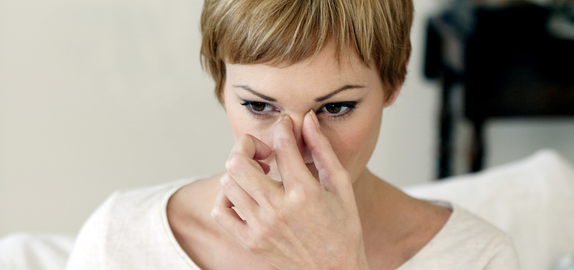If you suffer from seasonal rhinitis, chances are you have at least tried a few over-the-counter solutions – and maybe even some prescriptions – to help alleviate symptoms. The problem with most seasonal rhinitis treatments, however, is that they carry bothersome side effects, including drowsiness, dry mouth and stomach discomfort.
This might explain why acupuncture for seasonal rhinitis has a long-standing reputation as an effective treatment, and why many doctors are recommending it to their patients as a good alternative. New research shows there might be something to that long-standing reputation.
How and Why Acupuncture Works
While experts are not exactly sure how acupuncture works, there are theories as to why it can help sufferers of seasonal rhinitis. According to the British Acupuncture Council, acupuncture can help release endorphins, which in turn reduce pain and increase the feeling of well-being. Acupuncture also helps to reduce inflammation, which can relieve symptoms of congestion and discomfort experienced by those with seasonal rhinitis.
In addition, acupuncture seems to aid in reducing swelling, as well as in regulating the response of immune cell types. These two actions might account for the long-term positive effect of acupuncture in those with allergies – and might prove a great solution for those who don’t respond well to drug treatment.
What the Experts Say
According to a 2013 study published in the Annals of Internal Medicine, acupuncture can provide significant relief to those suffering from seasonal allergic rhinitis (SAR). In fact, of the 422 people receiving acupuncture in six different hospital clinics during the study, all reported some kind of improvement — such as needing less antihistamines and feeling better (life improvement benefits) — after eight weeks of acupuncture treatment. This was true regardless of any other forms of treatment the participants were using at the same time.
The study did point out that the benefits seemed to disappear a couple of months after stopping treatment, so it might be necessary to continue with sessions of acupuncture for seasonal rhinitis throughout the entire allergy season in order to ensure continuous relief.
During another study, conducted in 2008, 5,237 patients received either acupuncture treatments over a period of three months or no treatment at all. All the participants were asked to rate their health-related quality of life improvement for up to six months after the treatment was over. In all cases, those receiving acupuncture felt better and saw a reduction in their symptoms.
Even Sham Acupuncture Works
Sham acupuncture refers to inserting needles at random points, rather than the ones connected to the issue being treated. In many studies, sham acupuncture has been shown just as effective as the real thing in the treatment of certain diseases and issues. And this seems to be the case with acupuncture for seasonal rhinitis as well. In a study published in The American Journal of Chinese Medicine, experts treated patients for a total of eight weeks with either sham or real acupuncture.
The results? Both groups experienced similar relief from symptoms, including a reduction in their nasal and non-nasal symptoms. Neither group experienced side effects or significant discomfort from the treatment. This is similar to the findings of other studies, where patients have benefited from the insertion of needles, regardless of where or how this has been conducted.
While more comprehensive studies are needed to truly understand how acupuncture helps relieve allergy symptoms, research seems to indicate treatment does work. Even if you are already taking medication, adding sessions of acupuncture for seasonal rhinitis to the mix could help ease your symptoms faster and more effectively.


